Skinali - glass panels used to decorate the kitchen workspace. They are also called "skinale". Skinali after the appearance quickly gained popularity, partially displacing the usual tiles from everyday life. Since they are increasingly being used, one should decide on their advantages and disadvantages.
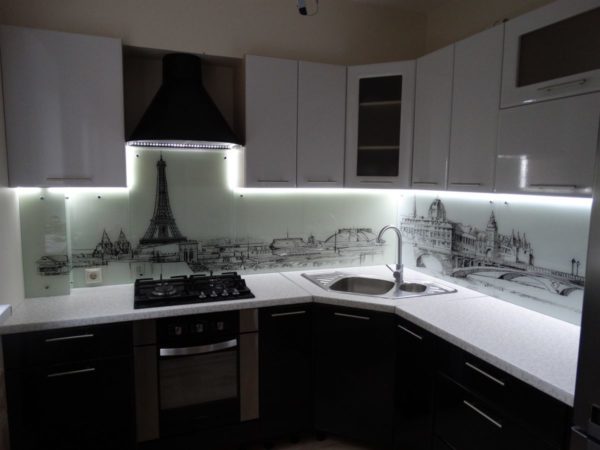
What is it and how is it used in the kitchen?
Skinali are decorative panels made of special glass with a high level of strength. They usually put different pictures on them. In most cases, they are mounted vertically on the wall between the kitchen work surface and hanging cabinets.This area is commonly referred to as the "kitchen apron" as it is designed to protect the walls from splashes that are always present during the cooking process or when washing dishes.
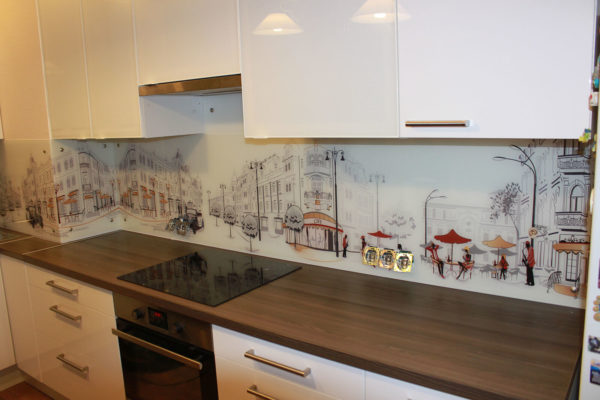
Material advantages
Skinali have such positive qualities:
- The glass they are made of is highly practical and cheap. In addition, it is hygienic and environmentally friendly. Steam does not harm this material in any way, and grease and dirt are not absorbed. Washing skinali is easy.
- Glass aprons always have an original finish, so that every kitchen is original. Today, choosing the most optimal glass is not difficult, no matter what the kitchen set is.
- Skinali are suitable even for small kitchens. Due to the reflection of objects in themselves, they visually expand such a room.
- Installing glass aprons is not difficult at all. Even laying ceramic tiles is much more difficult and dirtier. The work of installing skinalia is so simple that the owner of the house can do it himself.
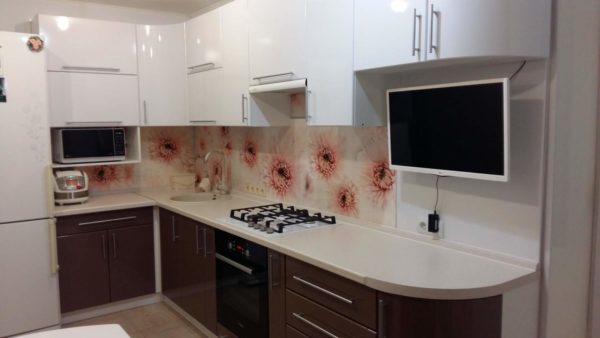
Cons of the material
Tempered glass panels cannot be adjusted. If you need to make additional holes for a new outlet or a new kitchen accessory, then this is not easy to do, even if you have a special tool. The price of a "kitchen apron" is still higher than that of any ceramic tile, but this difference is getting smaller every year.
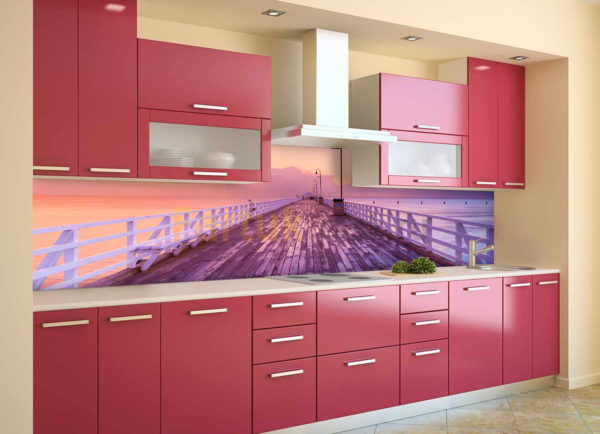
Important! The surface for mounting the skinali does not need to be treated very carefully, since the smooth glass surface will cover small cracks and roughness.
However, if a large amount of unfilled void is left under the panel, then mold may appear there, or insects will choose that place.Therefore, it is necessary to check the surface well before installing the panels for the presence of large voids.
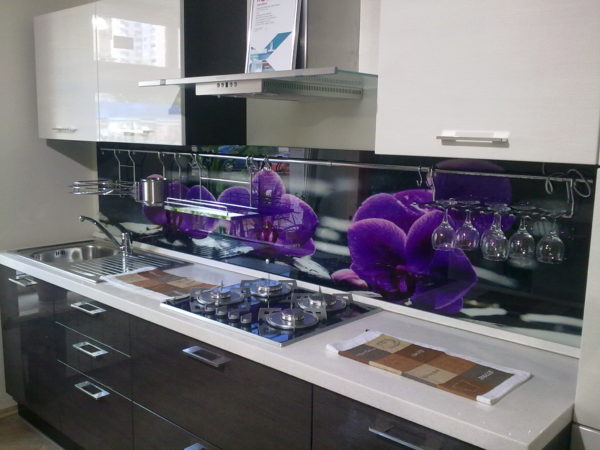
Strained glass
Such glass is called stalinite. To obtain it, the material is hardened by exposing it to a temperature contrast. In this case, the stress is equally distributed throughout the thickness of the glass, due to which it is strengthened. A tempered glass apron is not afraid of a strong blow from a frying pan. If there is enough power to break it, then the material will scatter around the room into glass peas, which will not harm a person. Stalinite can withstand temperatures up to 180 degrees Celsius.
Did the article help you?
